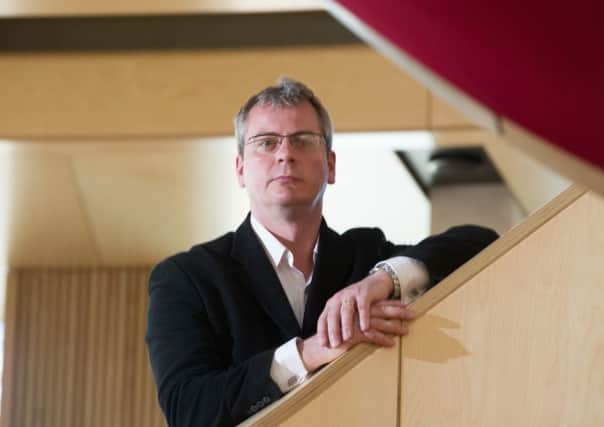David Kettle: Stuart Stratford makes his mark


Stuart Stratford is a fast mover. Announced back in April as Scottish Opera’s new music director – after a notorious 18 months since the abrupt departure of previous incumbent Emmanuel Joel-Hornack – in September he was already revealing a new concert series for the company, the first of which kicks off on 18 October. Well, it’s not entirely new, exactly – the three Sunday Series events relocate Scottish Opera’s popular St Andrews in the Square concerts to the company’s home venue of Glasgow’s Theatre Royal, and bring in some starry singers to join the Orchestra of Scottish Opera.
“We absolutely thought it was something to kick off quickly,” Stratford explains. “I officially took up the post in June, but my first opera isn’t until next year – Dvořák’s Rušalka, which opens in April – so we wanted to make a statement as soon as possible.”
Advertisement
Hide AdThe St Andrews in the Square concerts have been a well-established feature of Scottish Opera’s activities for some time – and it’s a venue that’s been shared by spin-off ensemble Music Co-OPERAtive Scotland, made up of musicians from the Orchestra of Scottish Opera. “I love St Andrews in the Square,” says Stratford. “It’s a wonderful venue with great intimacy and a really loyal audience – but it’s almost as if we’ve outgrown it.”
Relocating to the bigger, plusher Theatre Royal brings issues other than greater capacity, however. Putting the Orchestra on the theatre’s stage places Scottish Opera’s musicians firmly in the spotlight, celebrating one of the company’s finest assets.
“It’s lovely to feature the Orchestra prominently in that way,” says Stratford, “so that everyone can see the drama that happens in the playing.” But there’s also the question of how they’ll sound in a space conceived for theatre – to which Scottish Opera have found an innovative solution.
“We have this amazing acoustic shell which has been built by the company’s own carpenters,” says Stratford. “It sits on the stage, enclosing a large space, with a solid back and solid ceiling that’s angled slightly out, to push all the sound straight out into the theatre. We’ve tried it out already – all acoustics take a bit of time to get used to, but it has a wonderful feel.”
And providing a new orchestral performing venue for Scotland is something that shouldn’t be underestimated, he feels. But ultimately, it’s the concerts’ content that will draw the crowds – and Stratford has pulled in some rare talent. “We don’t have any Wagner in the season this year, so it’s great to work with the fantastic Wagnerian Ian Paterson – one of Scotland’s finest singers – for our second concert, in February.” The trio of concerts concludes in May with lyric soprano Kate Royal bringing together elegant Mozart and Richard Strauss.
For this week’s opening concert, renowned tenor Barry Banks – who worked with Stratford to conceive the series – has had to pull out for medical reasons, but his replacement is one of the opera world’s hottest tickets. Young Romanian tenor Ioan Hotea won Plácido Domingo’s Operalia competition earlier this year. “It’s a huge stamp of approval and authority, and hopefully we might have just got him at the beginning of a crest of a wave,” says Stratford. Hotea performs an enticing programme of Italian bel canto, which Stratford has carefully programmed to bring in both well-loved Verdi and Donizetti and some little-known Mascagni, from Guglielmo Ratcliff and L’amico Fritz. “It’s great to be able to surprise people – even some of the Orchestra, who’ve been playing opera for years, have said, wow, how come I didn’t know this stuff?”
Advertisement
Hide AdLooking further ahead, Stratford is keen to explore the possibilities of Scottish Opera’s new space. “The great thing about having the acoustic shell in the theatre is that we can reinvent our concert series each year. We’ll have other series of concerts, maybe with different themes, even possibly based around smaller ensembles. Who knows?”
With the Sunday Series’s enticing soloists and ingenious programming, it feels as if Stratford is grasping Scottish Opera’s broad activities with vigour, which can only bode well for the future.